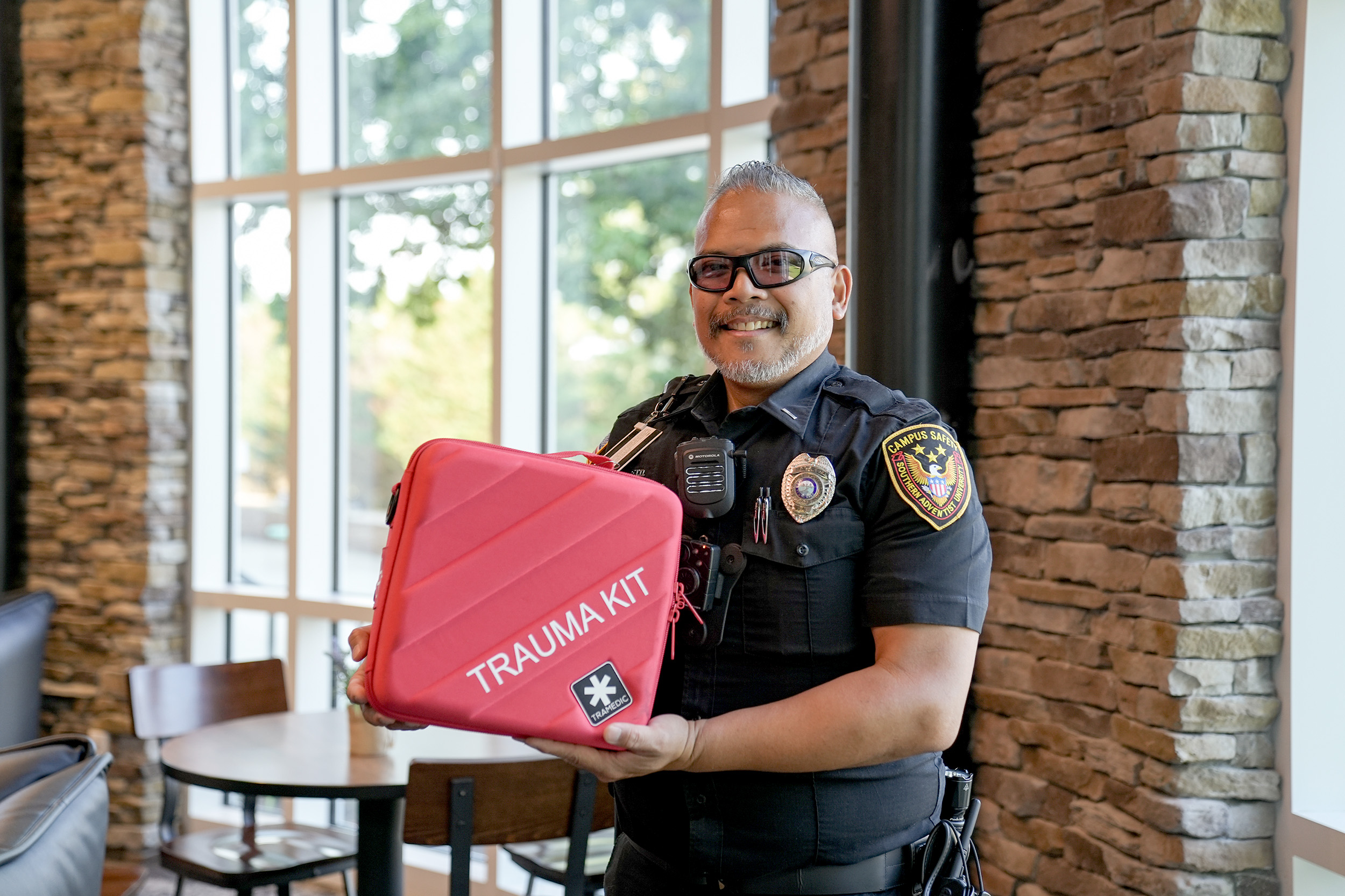Trauma Kits Enhance Medical Emergency Response on Campus
News
News

As a new school year approaches, Southern Adventist University has a valuable new health and safety resource on campus. In partnership with a generous donor, Southern has installed more than 30 Tramedicube® trauma kits in our buildings, making it easier for anyone nearby to provide immediate triage assistance if a medical emergency occurs. We care about keeping everyone on our campus safe and healthy, and one way we can make a difference is by being prepared in case an emergency arises.
Tourniquets, hemostatic agents, pressure dressings, and eye wound care are included in a Tramedicube®along with items to help control bleeding and assist with breathing complications, chest injuries, wound and burn care, and broken bones. Separately, located outside of the sealed trauma kit, each cabinet also contains smaller first-aid packets that can be used for minor cuts and injuries (such as adhesive bandages). With a top-mounted handle for transport, each 11x11-inch hard case is secured with a tamper-evident seal to indicate if the kit has been previously opened and items may be missing, which Campus Safety will restock as needed. After calling 911, bystanders can take action by triaging injuries and finding the necessary supplies to render urgent aid.
The trauma kits complement the automatic external defibrillators (AEDs) already in place in more than 30 locations around campus, an initiative implemented under the leadership of Ken Shaw, president of Southern, to ensure rapid and immediate care for anyone undergoing a cardiac emergency on campus.
According to Ellen Hostetler, vice president for Advancement, a donor with a medical background attended a convention in 2024 where the Tramedicube® was being showcased, learned about successful implementation of the kits at University of Tennessee’s Knoxville campus earlier this year, and graciously thought Southern could benefit from enhanced tools and supplies for trauma response, as well.
“The benefactor contacted us and said, ‘I’m shipping 15 kits to you,’” says Josh Fraker, the life safety and fire systems specialist for Campus Safety at Southern, who notes that the donation also included cabinets to house the kits. “After installing the kits, my team shared an update with the donor, and upon learning about all of our AED locations, he expanded the initiative by doubling the donation and said, ‘Put a kit at every place on campus that has an AED,’ a value exceeding $27,000.”
Campus signage and communication to students, faculty, and staff will explain where to locate kits and how to use the medical tools within each. “You can look at a map by any exit, find a trauma kit and AED location, go get what you need, and return to offer assistance to the person in distress,” added Fraker. “I’m proud that our university makes safety a priority and is equipped to respond to these types of medical emergency situations.”
More information about Tramedicubes® and online training is available at tacmedsolutions.com, stopthebleed.org, and cpr.heart.org. Anyone within the 576 square miles of Hamilton County, including Southern’s campus, can access locations of AEDs and trauma kits through the PulsePoint app. And while both AEDs and trauma kits contain detailed instructions for use, valuable training in CPR is available periodically at Southern as well as through the American Heart Association, the American Red Cross, and other organizations. Contact Campus Safety at 423.236.2100 if you’d like to learn more about these opportunities.
The views and opinions of campus guests do not necessarily reflect the official policy or position of Southern Adventist University. An individual's or group's invitation to speak or present on campus should not be regarded as a university endorsement of their philosophies and beliefs.